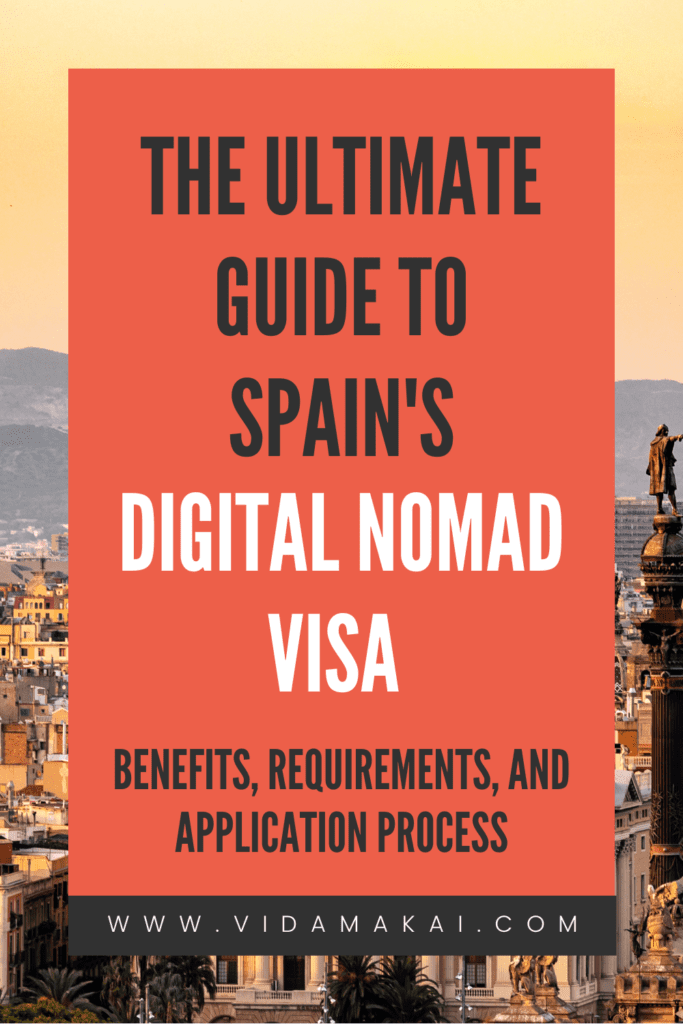As the digital nomad lifestyle gains popularity, many countries are adapting to the changing work landscape by introducing special visas for remote workers. Spain, with its rich culture, stunning landscapes, and vibrant cities, has become an enticing destination for digital nomads. In this comprehensive guide, we will explore Spain’s Digital Nomad Visa, highlighting its benefits, requirements, and the step-by-step application process.

Benefits of Spain’s Digital Nomad Visa:
Requirements for Spain’s Digital Nomad Visa:
- Eligibility: Applicants must be non-EU/EEA citizens who can provide proof of working as a remote employee or freelancer for a foreign employer or their own business.
- Financial Means: Demonstrate sufficient financial means to support yourself during your stay in Spain. This can include proof of income, savings, or a steady source of remote employment. Remote workers must show a stable work contract, permission from their company to work in Spain, and that the company they work for has been in business for at least one year. You must also demonstrate a minimum monthly income of 2,334 Euros to apply, with higher income brackets if a spouse/partner or children are traveling with you. Up to 20% of a freelancer’s income can come from Spanish clients.
- Health Insurance: Obtain private health insurance coverage for the duration of your stay in Spain. It must provide comprehensive medical coverage and include repatriation.
- Criminal Record: Present a clean criminal record from your home country or any other country where you have resided for the past five years.
- Accommodation: Provide proof of accommodation for your stay in Spain, such as a rental agreement or hotel reservation.
Application Process:
- Research: Gather information about the specific requirements and application process from the Spanish embassy or consulate in your home country or check the official Spanish immigration website.
- Documentation: Prepare the necessary documents, including a completed application form, valid passport, proof of employment or freelancing, financial statements, health insurance, criminal record certificate, and accommodation proof.
- Visa Application: Schedule an appointment at the Spanish embassy or consulate in your home country to submit your application. Make sure to bring all the required documents and pay the visa fee.
- Processing Time: The processing time may vary, but it typically takes around 10 to 20 working days. During this period, the authorities will review your application and conduct any necessary background checks.
- Notification: Once your application is approved, you will receive a visa sticker in your passport. You can then travel to Spain and complete the registration process with the local authorities within 30 days of arrival.
Spain’s Digital Nomad Visa presents an exciting opportunity for remote workers to experience the country’s captivating culture, picturesque landscapes, and warm hospitality while maintaining their professional pursuits. With its array of benefits, straightforward requirements, and relatively streamlined application process, it’s an enticing option for digital nomads seeking a work-life balance in a country brimming with opportunities. So pack your laptop, embrace the digital nomad lifestyle, and start your adventure in Spain!
Disclaimer: Visa requirements and processes can change over time. It is crucial to consult official sources and seek advice from the Spanish embassy or consulate in your home country to ensure you have the most up-to-date and accurate information.